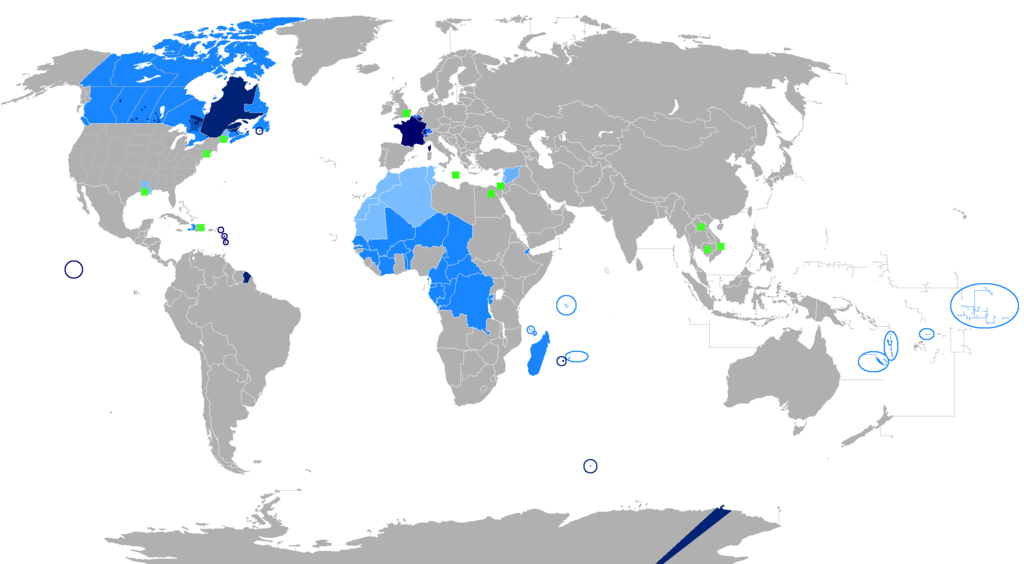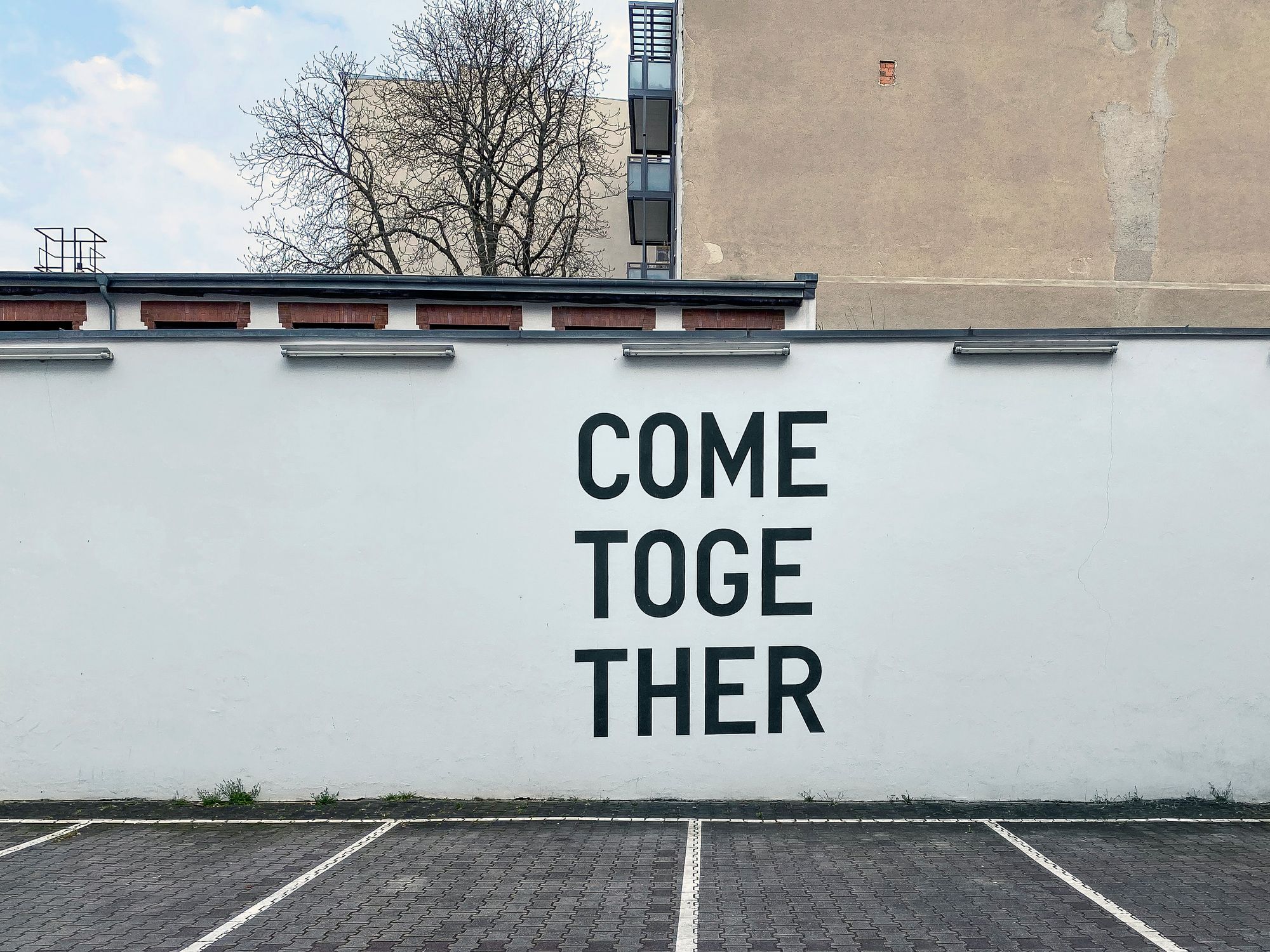If you've ever stressed out over verb conjugations or French pronunciation, you might well have wondered how to learn French faster – and without that feeling of taking one step forward and several great big leaps backward.
Thankfully, a lot has changed over the last decade or so, and these days, there's more than one way to learn French.
Whether you're willing to commit to total French immersion (or its at-home, DIY equivalent) or you want to supplement your French studies by befriending a native speaker, at Lingopie, we've got plenty of ideas to help you reach functional fluency in your target language in months, not years.
The French Language: A Quick Background
French is one of the most versatile and accessible languages you can possibly learn.
As the official language of 29 countries, spanning the continents of Europe, North and South America, and Australasia, it's spoken fluently by 235 million people worldwide.

Plus, it's an official language of NATO, the United Nations, the International Olympic Committee, and 33 further international organizations.
By learning French, you won't just join a truly international community of native speakers – you'll also be part of one of the fastest-growing groups of language learners in the world.
Demographic projections suggest that the number of French speakers globally will hit 500 million by 2025. That's a lot of French learners out there memorizing feminine and masculine words!
What is the most effective way to learn French fast?
How do you think a native French speaker learned their language? Simple: from the time they were born, they were primed to think that way.
Caregivers speak simply and clearly to infants, pointing out objects and repeating their names until the association sticks – and though nobody wants to go back to pre-preschool levels of communication, it's well worth keeping that in mind as you start learning French yourself.
The end goal isn't to be able to translate quickly – it's to be able to tell yourself, 'okay, today I'm going to think totally in French.'
Understanding this is the key to being able to fine-tune your language learning process and learn French faster than most students do.
Effectively, you'll be taking a step out of the process – rather than looking at an object, naming it in English, and then translating that into the corresponding French word, you'll learn to look at an object and associate it directly with the French word.
Over time, that'll develop into the ability to conjure up organic, and increasingly complex, thoughts and concepts in French.
To help you get to that point, here are some of our top tips for speeding up your French learning.
1. Have real conversations with native French speakers
The number one best way to learn to speak French quickly? Total immersion.

French fluency – or fluency in any spoken language – is gained by retraining your brain to actually think in your new language, and it's harder, though certainly not impossible, to do that if you're surrounded by your native language.
But not many people can dedicate themselves so wholeheartedly to learning French that they actually relocate to France, and that's where finding a language partner who speaks French will come in handy.
Taking the time to practice speaking conversationally, answering and asking questions, and letting the topics ebb and flow organically, is the ultimate language hack.
Where to find native French speakers
Of course, you don't actually have to get on a plane to find native French speakers to chat to.
Local Facebook groups are a great way to find conversation partners in your area, or you can find French-speaking people to follow on social media and spark up conversations.
Whichever way you go about it, whether in person or online, any organic conversation will help you learn French quickly – much more so than simply studying from a textbook.
2. Accept that you're going to sound funny at first when you speak French
Often, French learners underestimate how much they've picked up because they lack the confidence to dive into conversations.
There are a couple of things you'll need to accept as inevitable when you embark on a new language: first, you'll struggle to keep up when listening to native French speakers, and second, you'll draw blanks and stumble over your words when it's your turn to speak.
Both of these things will pass – and fast! – with practice, so give yourself the space and the grace to make mistakes. Your speaking skills will benefit enormously.
If you feel like you need a little bit of help, try reading this article on How to Overcome Shyness When Learning a New Language.

3. Create a Mini-France in Your Home
Set the mood; get results. You don't need to dim the lights and stick on any sultry jazz to get the job done here, but a French film or two, a suitable soundtrack (anything by Yann Tiersen is a safe bet) and some fine French cuisine will help you out of any language learning ruts you find yourself in.
One of the major draws of learning French is the opportunity to immerse yourself fully in the rich and vibrant French culture. So, instead of using that as a carrot that you dangle in front of yourself, let yourself enjoy it now – it'll get your cogs whirring again and could even have a scientific basis behind its efficacy.
Indeed, visualization has been proven to help improve learning rates and performance in a number of different skill sets, including French learning.
4. Listen to authentic French content as often as possible
If you only ever listen to the French language as it's spoken in audio courses, you'll only really ever learn stilted, barely functional sentences (ou est la piscine?) and moreover, you'll probably be bored senseless.
Instead, inject variety and a bit of color into your learning by ensuring you're taking in plenty of content from native French speakers.
Whether you end up in a deep dive of New Wave cinema, or you prefer to pick out some new podcasts, or you follow Francophone comedians such as Tattie McLeod on Instagram, you'll pick up the quirks and nuances of colloquial French far quicker this way.
5. Visit France!
That's why everyone does it, right?

All that verb conjugation and all those grammar constructions are in pursuit of a fairly universal end goal: to travel to France, or a French-speaking country, and be able to communicate clearly and effectively.
Planning a trip helps in so many ways. Most obviously, it gives you a goal and a deadline, so you're less likely to put off practicing French.
Planning your trip also gives you another chance to stumble upon some great French TV and movies, plus it'll reignite your inspiration if you feel like you've plateaued and are finding the language journey a frustrating one.
And, of course, when you're there you'll be able to use your newfound French in real-life conversations, picking up new vocabulary as a part of everyday life and accelerating your learning process faster than you'd have imagined possible.
Check out these French conversation starters if you haven't yet!
6. Establish a consistent study schedule
We get it – it's hard to commit to hours of studying French each day. You've got a job, and life, and maybe a family, and time is a finite resource.
But that's why it's key to figure out how you like to learn and lean into doing it your way.
Maybe you're a visual learner, and find it easiest to read and write when you're picking up unfamiliar words, or perhaps you absorb things quicker if you hear them.
Maybe you need to get involved yourself and try your hand at speaking French, or perhaps you'll find you need constant variety to stay interested.
In any case, doing some experimenting and figuring out your learning style will make it a lot easier to commit to daily practice, because you'll find it fun and you'll look forward to learning French – even the grammar rules and technical vocabulary.
7. Write Your Own French Phrasebook

Commit to learning 20 new words a day, and write them down.
Make flashcards, label items in your house, change your phone settings to French – whatever you need to do to commit them to memory.
You'll progress so much faster for setting a tangible goal like this.
But speaking French isn't just about stringing memorized words together. Just as in English, French is full of idioms, turns of phrase, colloquialisms, slang, and inside jokes that you'll pick up on as you're consuming French content or chatting to native speakers.
Keep a notebook, or the notes app on your phone, handy for these, because they'll be the magic ingredient that takes your French from basic beginner level to near-fluency.
8. Learn Conversational Connectors for More Natural Conversations
"Do you like food?"
"I do like food."
"What kind of food do you like?"
"I like Italian food. I like Thai food. I do not like Mexican food. I like Mexican alcohol."
While no language learning program can teach you how to have sparkling conversational skills, there's one easy way to ensure you don't corner any unsuspecting French speaker into an endless discussion with a robot, and that's a liberal sprinkling of conversational connectors.
This is a phrase you may not have ever even come across before because conversational connectors are such a natural part of native language patterns that we use them all the time in spoken English without even thinking about it.
In fact, that sentence alone had three conversational connectors, which allowed it to flow from one thought to the next without breaking it up into stilted, similar sentences.
In short, conversational connectors are words that French native speakers use to segue from one clause to the next. Et (and) is probably the most common, and mais (but) is a really useful one that'll help you level up as a French speaker.

Conversational connectors will help you link your thoughts together and clarify them by making it clear when, where, or why something happened.
Once you've picked up some basic French vocabulary, they'll be a game-changer for learning French until you speak like a native French speaker.
9. Learn the most common French vocabulary and phrases
When you're taking your very first lesson, it doesn't make sense to make your 20 words of the day highly specialized, über-specific ones.
Instead, begin at the beginning – pick the most common French words to learn first, and then work your way up to more technical vocabulary.
Some of the most commonly used French words that you might learn on day one include...
- la/le/l'/les – 'the', in its feminine, masculine, pre-vowel, and plural versions
- tu/vous – the informal and formal 'you'
- je – 'I'
- de – 'from', 'by', 'in', 'with', 'of', 'than'
- ou – where
- qui – who
- qu'est-ce que – what
- quand – when
- avoir – to have
- être – to be
Read Also:

10. Focus on the Easy Aspects of the French language
It's okay to be a beginner, and when you're starting your language learning journey, whether you're taking a language course, going for the French immersion method, or simply teaching yourself, you won't do yourself any favors by forcing yourself into Advanced French too soon.
You don't need to read Les Miserables in the original French right now, nor do you need to make your way through Jean-Pierre Jeunet's oeuvre without subtitles.
You'll make much faster progress, and stay much more motivated if you focus on the basics to begin with and let your progression happen naturally.
11. Take Advantage of AI Tools
The most effective way to learn French fast involves a multifaceted approach combining structured lessons, immersive experiences, and regular practice. Additionally, engaging with native content through platforms like Lingopie, which offers TV shows and movies in French and has an AI feature to correct grammar, helps contextualize learning and improve listening skills. A highly valuable resource for practicing French is ChatGPT, where you can engage in written conversations in French to refine your language skills.
Moreover, using the call feature to speak with AI in French can enhance your speaking and listening abilities, providing an interactive and immersive experience that accelerates your fluency. Combining these methods creates a comprehensive learning strategy that can significantly expedite your journey to mastering French.
Read Also:

FAQs relating to Learning French Quickly
Ready to speak French like a born-and-bred Parisian?
Let's run through some of the questions you might have before you commit yourself to a journey that could change your life (or, at the very least, your baguette-buying) forever.

Can you Realistically Learn French?
Yes, you can realistically learn French with consistent effort and the right resources. Many people achieve fluency through dedication and regular practice. It's important to use a combination of language apps, immersion techniques, and interactive methods. Resources like Lingopie, which uses TV shows and movies, can be particularly effective. With the right approach, anyone can learn French.
How Quickly Can You Realistically Learn French?
The time it takes to learn French varies based on several factors, including prior language experience and daily practice time. Generally, you can achieve basic conversational skills in a few months with consistent effort. Dedicating 30 minutes to an hour each day to focused study can lead to substantial progress within 3-6 months. Using immersive tools like Lingopie can accelerate this process. Individual commitment and practice are crucial.
What is the Best App to Quickly Learn Basic French Specifically for Travel?
Lingopie is highly recommended for quickly learning basic French for travel, as it uses TV shows and movies to teach the language in context. This method helps you pick up useful phrases and improve your listening skills. Other popular options include Duolingo and Babbel, which offer structured lessons and exercises to build your foundational knowledge. However, combining these apps with Lingopie can accelerate your learning and make it more enjoyable. These tools together provide a comprehensive approach to quickly acquiring basic French skills for travel.
What's the best and fastest way to learn French?
The best and fastest way to learn French involves using a combination of immersive and interactive methods. Engaging with native content, such as watching French TV shows and movies on Lingopie, can significantly speed up your learning. Consistent daily practice, ideally 30 minutes to an hour, is essential. Using language apps like Duolingo and Babbel for structured lessons can also help build a strong foundation. Additionally, practicing speaking with native speakers, either through language exchange programs or online platforms, can accelerate your fluency.
What is the best way to learn French on your own?
Learning French on your own requires a well-rounded approach that incorporates various resources. Start with language apps like Memrize and Babbel for structured lessons and vocabulary building. Supplement this with immersive content on platforms like Lingopie, which uses TV shows and movies to teach French in context. Regularly practicing speaking and listening through online language exchange platforms can also enhance your skills. Setting a consistent study schedule and immersing yourself in the language as much as possible are key to self-study success.

Summary: The Ultimate Guide to Learning French Fast
Though we can't promise you'll be able to speak French overnight, injecting some creativity into your French learning process will get you well on the way to sounding like a native speaker in less time than you might expect.
To get started with learning French – and to begin absorbing the fascinating culture and rich history of Francophone people and countries around the world – sign up for a free trial of Lingopie to dive into an extensive catalog of movies, TV shows, and audiobooks suitable for all learning levels.
Watch with the option of English and French subtitles, or challenge yourself with none at all – and discover a new way to learn French fast.
And if you feel like doing some more reading, here – have 8 Tips to Boost Your French Learning.


![How to Learn French Fast [Guide]](/blog/content/images/size/w1200/2024/06/Spanish-1-6.png)



![10 Most Useful Languages In Europe For Work [2025 Study]](/blog/content/images/size/w1200/2024/06/10-Most-Useful-Languages-In-Europe-For-Work.jpg)



